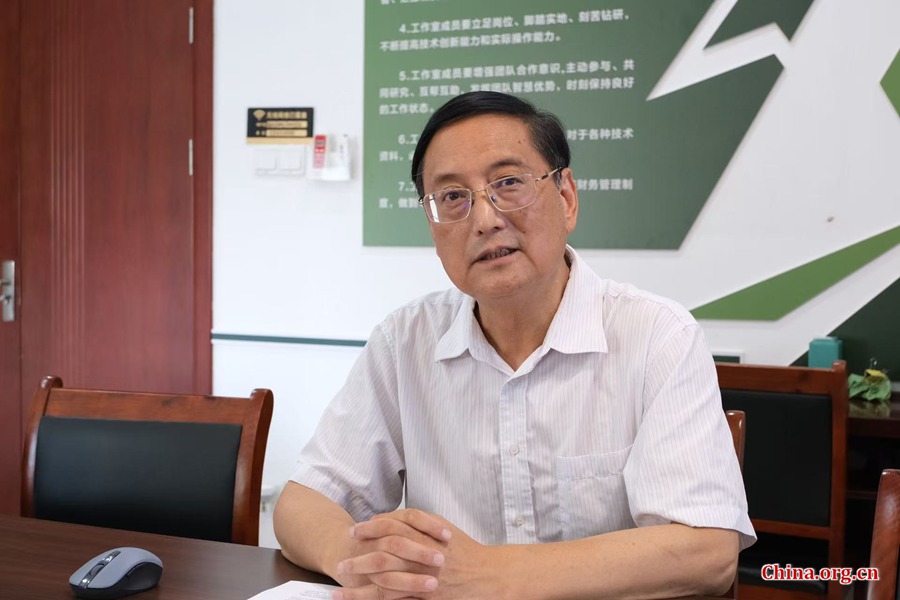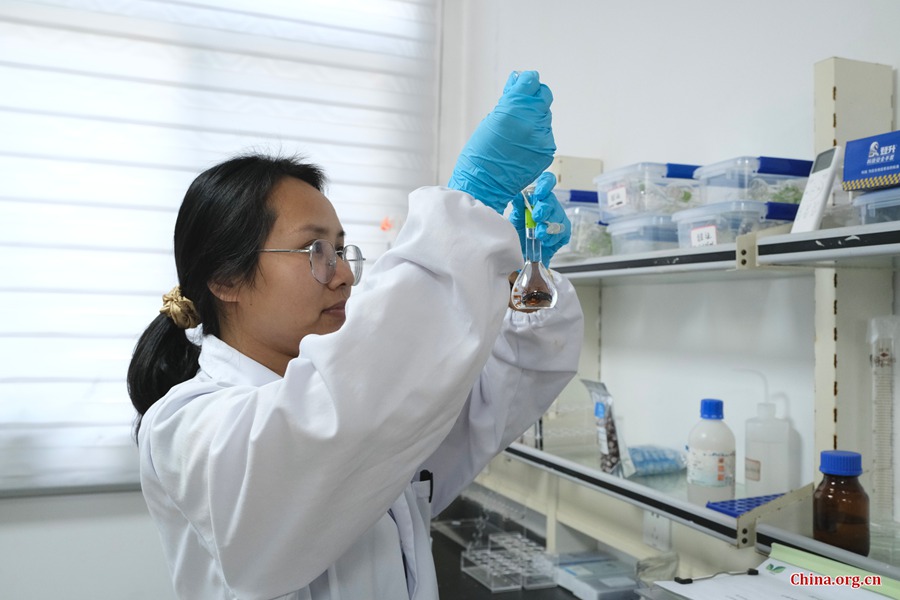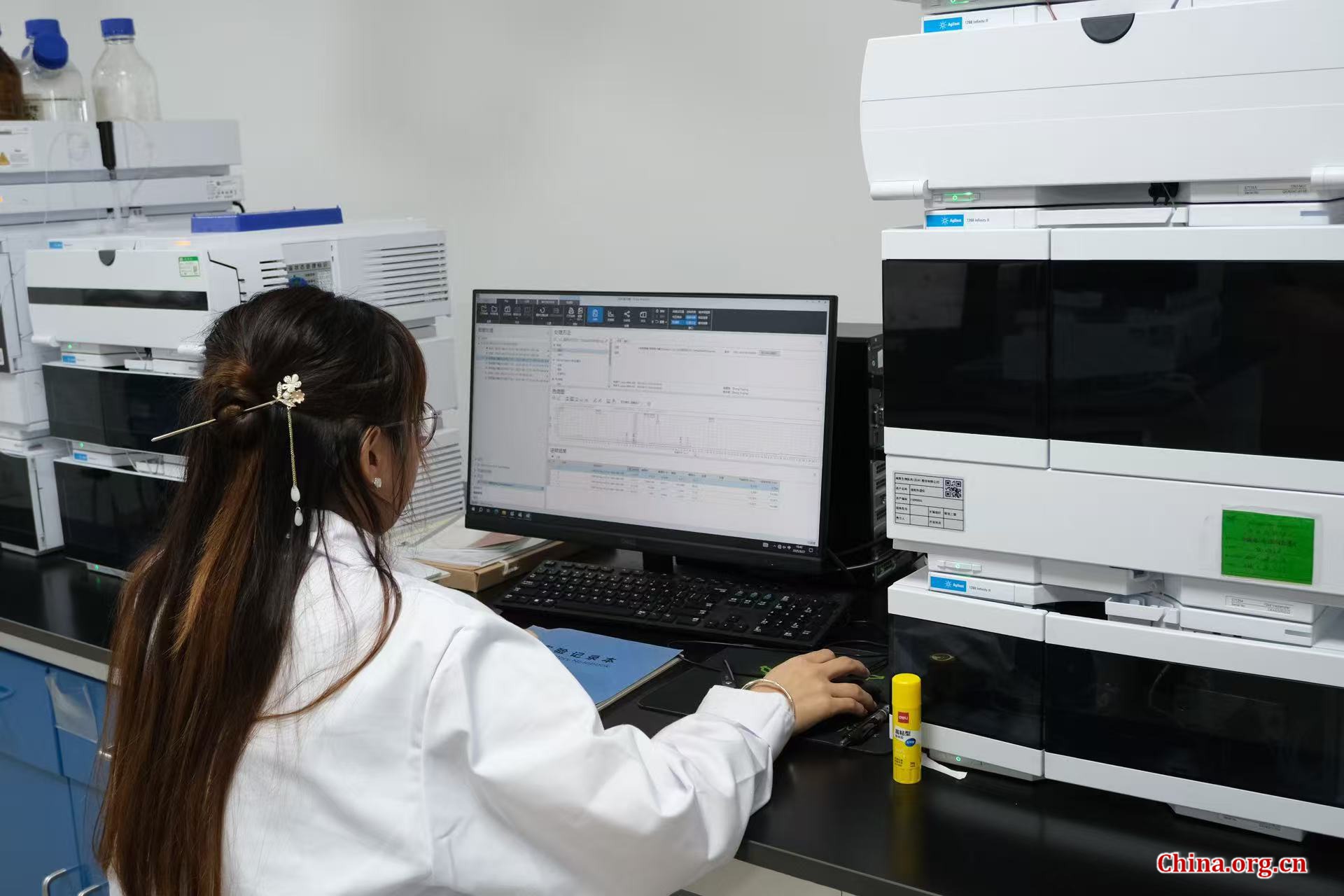Yan Yongyi, an Australian-Chinese entrepreneur, has found Suzhou in east China's Jiangsu province to be the ideal environment to advance his company's mission of leveraging traditional Chinese medicine to address global health challenges. His firm, Vinsce Bio-Pharm (Suzhou) Co. Ltd., exemplifies the success of a broader biomedical cluster that has made Suzhou one of China's leading hubs for the industry.

Yan Yongyi at his company's offices in Suzhou, Jiangsu province, Aug. 27, 2025. [Photo by Liao Jiaxin/China.org.cn]
Suzhou is home to more than 4,200 biomedical companies, including 730 enterprises above designated size that together generate over 240 billion yuan (approximately $33.3 billion) in annual output. Over the past three years, the sector has maintained an average annual growth rate of 10.1%, accounting for 43% of Jiangsu province's — and 6% of China's — total biomedical output value, placing it among the top tier of the nation's biopharmaceutical centers.
Vinsce Bio-Pharm focuses primarily on artemisinin, an antimalarial drug derived from artemisia annua, a traditional Chinese herb. Also, the company expands its use into treatments for conditions such as Alzheimer's in response to China's aging population. "About 80% of our energy and resources are dedicated to artemisinin," Yan noted. He emphasized the drug's Chinese origins and expressed the company's commitment to expanding its global impact.

A staff member prepares an artemisinin solution at Vinsce Bio-Pharm (Suzhou) Co. Ltd. in Suzhou, Jiangsu province, Aug. 27, 2025. [Photo by Liao Jiaxin/China.org.cn]
Yan's journey reflects a strategic path that many high-level Chinese professionals take when returning to China. After studying and working in Australia, he moved back to China in 2005 and first gained valuable experience leading a pioneering artemisinin R&D team in Guangzhou. His journey later led him to Suzhou in 2010, where he was drawn by the city's robust and comprehensive support system for overseas talent and its potential for industrial-scale production.
"The Suzhou government has been very forward-thinking," Yan explained. "The funding and policy backing here were unmatched — if I'd stayed abroad, it would have been impossible to receive such a foundation for starting a business from others."
He ultimately chose Suzhou for its exceptional living environment and robust support systems. "The regulators here are strict but supportive," he noted. "They never create obstacles, and the treatment is excellent."
One of the critical challenges for biopharmaceutical startups is the requirement for self-owned production facilities due to strict Good Manufacturing Practice certification standards — a hurdle Suzhou helped overcome.
"The government provided a guarantee to secure a 20-million-yuan loan for us to build our plant," Yan said. "Leasing is never an option in this sector. You must control your own production assets to meet strict regulatory standards."

A staff member performs liquid chromatography testing at Vinsce Bio-Pharm (Suzhou) Co. Ltd. in Suzhou, Jiangsu province, Aug. 27, 2025. [Photo by Liao Jiaxin/China.org.cn]
Today, Vinsce is the only company in the world with a full industrial chain covering artemisinin, from genetic research to drug production. "Chinese products like artemisinin have gone on to save millions of lives, especially in Africa," Yan emphasized. He added that this life-saving impact represents a significant contribution from China to global public health.
Looking ahead, Yan is optimistic about Suzhou's growing role in the global biopharmaceutical industry. "The research and capital for the biomedical sector are concentrating in Shanghai, and Suzhou is becoming a central hub for its production," he said. "With new national policies supporting the sector, and with Suzhou's existing industrial chain, the future is very bright."


 Share:
Share: 




 京公網(wǎng)安備 11010802027341號(hào)
京公網(wǎng)安備 11010802027341號(hào)